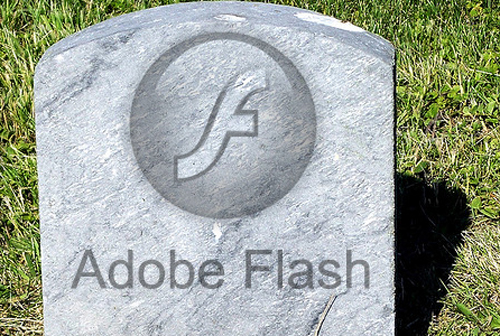Indie authors are encouraged to update their websites and blogs as soon as possible because the Mozilla Firefox internet browser no longer supports Flash. Mark Schmidt, the head of the Firefox support team at Mozilla, tweeted that all versions of Flash Player are blocked in the browser as of its latest update.
Adobe has scrambled to fix problems as they have become public, but they are unable to keep up with the rising tide of hackers exploiting vulnerabilities with the plugin. This has promoted some serious companies from abandoning the platform altogether.
Remember back in 2010 when Steve Jobs memorably explained his problems with Flash and why his iPhone and iPad wouldn’t support it? Or when YouTube dropped Flash as its default player in favor of HTML5 in January, or how Chrome now intelligently pauses instances of Flash video on its pages? Even Blackberry disabled Flash on their internet browser a few months ago.
If you are browsing the internet and are using Chrome or Firefox you will likely start seeing a ton of popup messages telling you that Flash is disabled or you have to update your player. If you want to disable these messages altogether you can uninstall Flash from your computer, using this tool.
Many websites and blogs that indie authors run heavily depend on Flash, especially if they have been around for a number of years. I recommend that you visit your sites using Firefox and checkout what Flash elements are on your site so you can either remove them altogether or look for HTML5 alternatives. How do you detect Flash? Well, you can install a browser plugin called Firebug which is really popular.
Michael Kozlowski is the editor-in-chief at Good e-Reader and has written about audiobooks and e-readers for the past fifteen years. Newspapers and websites such as the CBC, CNET, Engadget, Huffington Post and the New York Times have picked up his articles. He Lives in Vancouver, British Columbia, Canada.

